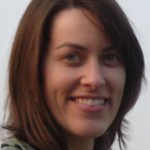Education
Here's Rod Dreher giving lectures about civility:
What is it with science-oriented advocates who consider contempt a virtue? Who, exactly, do they think they are going to persuade? (You could say the same thing about sneering political bloggers, sneering religious bloggers, and, well, sneerers in all forms of public discourse, inasmuch as sneering seems to be a popular pose these days.) Most of us are tempted to sneer every now and then (I certainly am guilty of this), but some of these people adopt sneering as a basic intellectual stance to the world.
Here's Rod Dreher hectoring Anne Rice…
One of the things that disturbs me the most about where medicine is going is the infiltration of quackery into academic medicine. So prevalent is this unfortunate phenomenon that Doctor RW even coined a truly apt term for it: Quackademic medicine. In essence, pseudoscientific and even prescientific ideas are rapidly being "integrated" with science-based medicine, or, as I tend to view it, quackery is being "integrated" with scientific medicine, to the gradual erosion of scientific standards in medicine. No quackery is too quacky, it seems. Even homeopathy and naturopathy can seemingly find…
Scientopia
A new non-profit science blog collective, including several people who left ScienceBlogs in Sodamageddon.
(tags: science blogs internet academia)
Experimental Error: Don't Try This at Home - Science Careers - Biotech, Pharmaceutical, Faculty, Postdoc jobs on Science Careers
"So if you're Doktor Kaboom!, Professor Ker-Splat, or Nobel Laureate "I Didn't Think It Would Blow Up But Then It Totally Went Pfweeeeeeeeeeeee!," maybe it's time to vary the act a bit. Forget about the eyedropper in the 2-liter soda bottle and put together a show based on what scientists actually do.
Good…
"The most useful piece of learning for the uses of life is to unlearn what is untrue." -Antisthenes
As many of you know, in addition to news about cosmology, space, astronomy, and physics, I'm also heavily involved in education. This includes, in various stages, teaching, curriculum design, and mentoring students. But I got the following message from Rita from the UK last week -- who's about to start her A-levels -- and I felt slightly ashamed. (Message edited slightly for clarity.)
I am interested in space, though currently my interest in it is not very specific. I am interested in the…
Getting young scientists into the science teacher pipeline: IU News Room: Indiana University
"Producing science teachers who can keep up with rapidly advancing fields and can also inspire students is not an easy task. With a grant from the National Science Foundation's Robert Noyce Scholarship Program, the School of Science at Indiana University-Purdue University Indianapolis is challenging science majors -- individuals who enjoy and appreciate science -- to transfer their enthusiasm and knowledge to students in middle school and high school classrooms.
Through the Noyce Summer Internship…
Meet the real victims of Bush-era lawlessness: his lawyers. - By Dahlia Lithwick - Slate Magazine
"Those who distorted and upended the legal rules during the Bush era have hermetically sealed themselves inside a legal tautology that provides that lawyers cannot be held accountable for merely offering legal advice, and nonlawyers cannot be held accountable because they believed that what they did was legal. But now we are poised to drown in an even more dangerous tautology--first offered up by former Attorney General Michael Mukasey--which holds that the Bush administration lawyers made…
A few weeks ago I spent a day at the Virginia Home Educators Convention in Richmond. These are the religious home schoolers we are talking about, meaning creationism was very well-represented indeed. Ken Ham gave several keynote talks. Yay!
I never got around to doing a proper write-up of the conference, but I do want to tell you about one of the talks I attended. It was called “Math From a Biblical Worldview?” Indeed, it was when I saw this talk advertised in the program that I knew I had to attend.
The speaker was Katherine Loop, author of a number of math education resources for home…
Mark Pendergrast writes: It's time to wrap up this ScienceBlog Book Club on my book, Inside the Outbreaks. I want to thank Liz Borkowski, Steve Schoenbaum, and Karen Starko for their excellent, insightful commentaries, and thanks too to those who commented here. I assume that you can continue to do so, and you can also contact me through my website at www.markpendergrast.com. While you're there, on the Outbreaks page, take a look at the YouTube link to the children of Niger singing. It's quite wonderful, and it also has an important message at the end.
I don't regard this as the end of…
Mark Pendergrast writes: It's time to wrap up this ScienceBlog Book Club on my book, Inside the Outbreaks. I want to thank Liz Borkowski, Steve Schoenbaum, and Karen Starko for their excellent, insightful commentaries, and thanks too to those who commented here. I assume that you can continue to do so, and you can also contact me through my website at www.markpendergrast.com. While you're there, on the Outbreaks page, take a look at the YouTube link to the children of Niger singing. It's quite wonderful, and it also has an important message at the end.
I don't regard this as the end of…
Today Americans for Medical Progress has announced two recipients for academic year 2010-2011 of the Michael D. Hayre Fellowship in Public Outreach, designed to inspire and motivate the next generation of research advocates. This year, I'm especially wowed by their project.
From the AMP press release:
Two Ph.D. candidates in neuroscience have been selected by Americans for Medical Progress as the 2010-11 Michael D. Hayre Fellows in Public Outreach.  Elizabeth Burnett and Scott Dobrin are in the Neuroscience Program at Wake Forest University School of Medicine in Winston-Salem,…
Back in one of the communications skills threads, Karen comments about science and humanities:
It's easy enough for a humanities major to avoid doing much science in school. The converse is not true. It strikes me that for those earlier scientists who attended univeristy, both their early education and university years were more suited to focusing on the science.
This relates to the communication issue as this often means that the science inclined are often put in a position of being evaluated on their communication in area that are areas of weakness for them, those areas where communications…
tags: psychology, behavior, pedagogy, education, learning, teaching methods, model/rival technique, Avian Learning EXperiment, Avian Language EXperiment, ALEX, researchblogging.org,peer-reviewed research, journal club
ALEX the African Grey Parrot and Dr Irene Pepperberg.
Image: The ALEX Foundation.
Like anyone who has taught science courses, and probably like anyone who has ever taught anything to a classroom in the history of mankind, I've wondered how to motivate my students to really care about the material they are learning, beyond simply "studying for the test." For example, I have…
When we think of outreach and recruitment, we don't usually think of using the library as a tool to attract students to our institutions. Here at York I do occasionally take part in Faculty of Science & Engineering outreach activities -- mostly when the library is included in high school science class tours of the institution.
Rather than do something really boring like a "here's the reference desk" tour, I like to take smaller groups down into our teaching lab and do (hopefully) fun and amusing interactive sessions on the current state of the information universe. You can get an idea…
Continuing with the tradition from last two years, I will occasionally post interviews with some of the participants of the ScienceOnline2010 conference that was held in the Research Triangle Park, NC back in January. See all the interviews in this series here. You can check out previous years' interviews as well: 2008 and 2009.
Today, I asked Anne Frances Johnson to answer a few questions. Anne is a freelancer and grad student at the University of North Carolina at Chapel Hill.
Welcome to A Blog Around The Clock. Would you, please, tell my readers a little bit more about yourself? Where…
Someday, a science reporter is going to hybridize with an economics reporter and then the topic of how science is funded will actually be covered accurately. Until then, you're stuck with the Mad Biologist. By way of The Intersection, we come across this Chronicle of Higher Education commentary by Andrew Hacker and Claudia Dreifus. I think the overall point, which is that colleges and universities have strayed from their core mission, which is education, is a good one. But like much commentary on this subject, it neglects the harsh, cold reality of revenue (Got Pepsi?). Here's their…
Really, they are. A while back, the Institute for Creation Research moved to Texas, where they expected a friendly welcome, and instead they got spanked: their request to be allowed to hand out degrees was turned down by the Texas Higher Education Coordinating Board. This made the ICR angry, and they made a wacky lawsuit. A genuinely deranged brief. Their minds work in very twisty weird ways.
They've gone down in flames — they are not authorized to give out degrees. But those creationist brains that scuttle sideways and inside out are not daunted by this mere legal restriction! Their website…
Attention conservation notice: 3000 words about how smart people who ought to know better are reading way too much into a poll.
Last May, NCSE reported on a poll on evolution conducted by Virginia Commonwealth University. The results were, to my eye, in line with most of the other polling out there, so I never wrote about it here, other than a passing mention in a post about my WaPo review of Elaine Howard Ecklund's Science vs. Religion.
Anyway, a month and a half later, Jerry Coyne and Jason Rosenhouse have discovered the poll, and each has found different questions in the poll that they…
Marie-Claire Shanahan is an Assistant Professor of Science Education at the University of Alberta, in Edmonton, Alberta, Canada. As a former science teacher, she was always surprised by the ways that students talked themselves out of liking science - and she decided to do something about it. She now researches the social and cultural aspects of science and science education, especially those related to language and identity.
Marie-Claire and I first met online, then also in Real World when she attended ScienceOnline 2010, after which I interviewed her for my blog. You can check out her…
We can't help but talk to ourselves. At any given moment, there's a running commentary unfolding in our stream of consciousness, an incessant soliloquy of observations, questions and opinions. But what's the best way to structure all this introspective chatter? What kind of words should we whisper to ourselves? And does all this self-talk even matter?
These are the fascinating questions asked in a new paper led by Ibrahim Senay and Dolores Albarracin, at the University of Illinois at Urbana-Champaign and published in Psychological Science. The experiment was straightforward. Fifty three…
Kevin Drum has done a couple of education-related posts recently, first noting a story claiming that college kids study less than they used to, and following that up with an anecdotal report on kids these days, from an email correspondent who teaches physics. Kevin's emailer writes of his recent experiences with two different groups of students:
Since the early 1990's, I have pre and post tested all of my introductory mechanics classes using a research based diagnostic instrument, the Force and Motion Conceptual Evaluation. This instrument is based on research by Ron Thornton at Tufts that…

